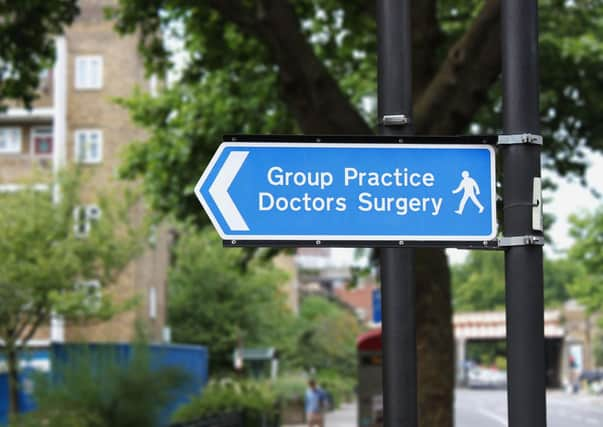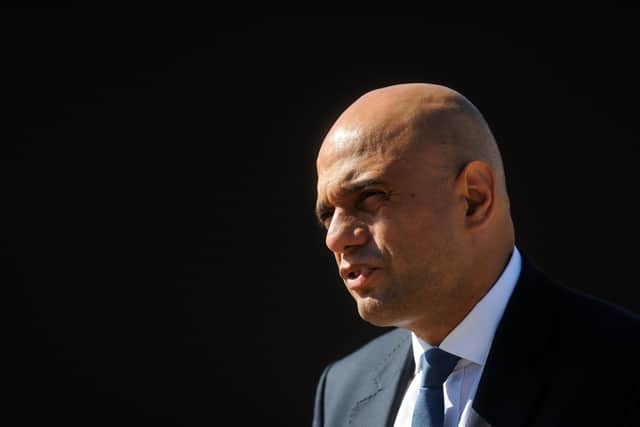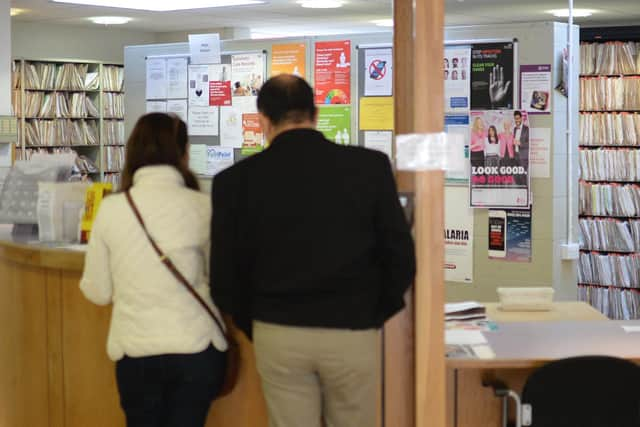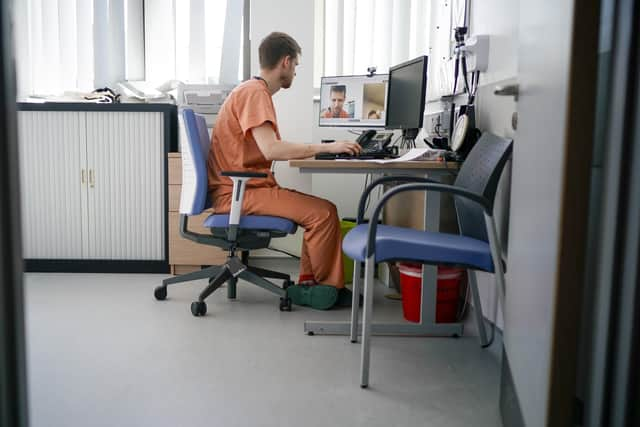Don’t blame GPs for appointments and doctors’ shortage – Tom Richmond


Its receptionists seem to be so obstructive that people dial 999 or go to A&E instead. When an acquaintance was taken seriously ill at home, the visiting ambulance crew were wonderfully empathetic.
Advertisement
Hide AdAdvertisement
Hide AdYet I’m also acutely aware of countless people benefitting from a resumption of face-to-face appointments, often at smaller practices that still have a personal care ethos.


They’re also upholding the very best traditions of general practice, despite incredible pressures, because they realise that continuity of care – and family knowledge – do still matter.
Advertisement
Hide AdAdvertisement
Hide AdAnd, while I’m instinctively in favour of calls for GPs to start seeing more patients in person, I’m afraid that the Government is going about this in a totally cackhanded and misguided way.


General practice was in crisis long before the Covid pandemic, propped up by goodwill, because longstanding doctors – and newly-qualified medics – felt it was not for them.
Identifying the reasons for this, at a time when the Government’s own GP recruitment strategy is patently failing to keep up with the health needs of an ageing population, is fundamental to the future of local practices, and particularly in those deprived areas with the greatest health needs.
Yet what happens? Matt Hancock, the former Health and Social Care Secretary, ignores correspondence from the British Medical Association – the same discourtesy that he afforded to Yorkshire care home boss Mike Padgham.
Advertisement
Hide AdAdvertisement
Hide AdHancock’s successor Sajid Javid, and his inner circle, have continued this unhealthy trend and have also chosen not to respond to letters from Dr Richard Vautrey, the Leeds doctor who chairs the BMA’s GP committee.


And then when Javid tells doctors to resume appointments, without any dialogue, it is doctors – and their staff – who find themselves on the receiving end of awful abuse from disgruntled patients whose hopes and expectations have been raised by the anti-GP rhetoric of Ministers being egged on by certain national newspapers.
A balance has to be struck – there are many instances when a simple phone call is a more productive use of a GP’s time and this needs to be accepted if family doctors are to have sufficient time for the more urgent cases, like cancer referrals, that could be a matter of life and death.
Yet this will only happen if there’s a better understanding of the reasons behind the shortage of GPs and a meaningful dialogue between Ministers and the medical profession. Why, therefore, is Sajid Javid reluctant to participate in these exercises – or is his primary focus, just like his predecessor, the politics of distraction?
Advertisement
Hide AdAdvertisement
Hide AdGAVIN Barwell’s inside account of Theresa May’s premiership, called Chief of Staff, lays bare the extent of the challenges she faced over Brexit – and her determination not to compromise Northern Ireland’s future.


It was not helped by Boris Johnson, her Foreign Secretary, referring to this as “mumbo jumbo” and then teaming up with Gavin Williamson to say the benefit of Brexit shouldn’t be compromised “to satisfy Ireland”.
Even more contemptible was Williamson’s behaviour when May – in a show of great leadership – sacked him as Defence Secretary for leaking a National Security Council meeting about Chinese telecoms giant Huawei’s involvement in the UK’s 56 network.
“Having set out why he felt he was being badly treated, Gavin (Williamson) moved on to threats,” writes Barwell who was May’s chief of staff and an ever present at every key meeting and moment of crisis. “And if the prime minister tried to get rid of him, there would be the world’s biggest s***show.”
Advertisement
Hide AdAdvertisement
Hide AdThere was one from the moment that Johnson became PM and named Williamson as Education Secretary.
PROGRESS at last on the postmasters fraud scandal – David Davis, the Howden and Haltemprice MP, is now on the case.
The former Brexit Secretary has challenged the Department of Business to ensure that “sufficient compensation” is paid to hundreds of victims “in a timely manner” – including legislation if necessary.
He received a far more helpful reply from Paul Scully, the Small Business Minister, than other MPs have received in the past.
Advertisement
Hide AdAdvertisement
Hide AdThe Minister has now met victims, including Hull’s Janet Skinner, and says he says he was moved “by the harrowing tales that the sub-postmasters tell after 20 years of suffering” and that he “will look at everything that is required” so all sub-postmasters “can seek justice and request compensation”.
However postmasters, who are the victims here, shouldn’t have to wait another 20 years for the Government and Post Office Ltd to determine liability or who foots the bill.
A GREAT tweet by Yorkshire’s three-time Olympic rowing champion Andrew Triggs Hodge after Swim England warned that 2,000 further pools could be forced to close by the end of the decade.
He posted that this was a matter of “national importance” and “swimming pools should be state-backed, free or low cost, and every kid should have to be able to swim by the time they leave primary school”.
Advertisement
Hide AdAdvertisement
Hide AdHe also cited the importance of the cycling proficiency test, adding “we can’t live/work online and e-play”.
Let’s hope our Olympic heroes from Tokyo maintain the pressure whenever they are fêted by Ministers.
Support The Yorkshire Post and become a subscriber today. Your subscription will help us to continue to bring quality news to the people of Yorkshire. In return, you’ll see fewer ads on site, get free access to our app and receive exclusive members-only offers. Click here to subscribe.
Comment Guidelines
National World encourages reader discussion on our stories. User feedback, insights and back-and-forth exchanges add a rich layer of context to reporting. Please review our Community Guidelines before commenting.